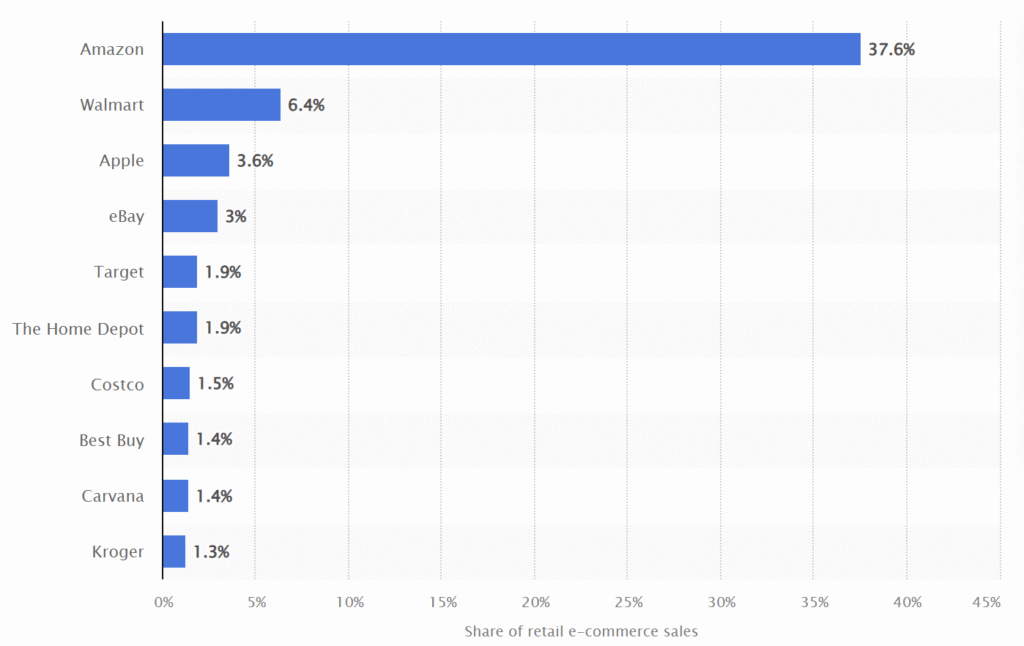Uncover the FTC’s antitrust lawsuit against Amazon, filed in 2023, accusing the e-commerce giant of illegal monopoly practices that raise consumer prices and harm small businesses. Explore key allegations, potential impacts on the online retail market, and what this means for millennials and Gen Z.
Introduction
Picture this: you’re scrolling for the perfect gaming console or sustainable fashion find on Amazon, but behind the scenes, the e-commerce giant is being accused of rigging the game. In September 2023, the Federal Trade Commission (FTC), backed by 17 states, dropped a bombshell antitrust lawsuit against Amazon, claiming it uses shady tactics to dominate the online retail market. Filed in the U.S. District Court for the Western District of Washington, this case is a big deal for millennials and Gen Z, who live for fast shipping and online deals. This SEO-optimized blog breaks down the Amazon lawsuit, its impact on your online shopping habits, and what’s at stake for the future of e-commerce [1].
What’s the Deal with the Amazon Antitrust Lawsuit?
Antitrust laws are the rulebook for keeping markets fair, ensuring no company becomes a bully. The FTC alleges Amazon has been flexing its muscles to squash competition in the online retail market. The lawsuit, launched on September 26, 2023, claims Amazon’s monopoly practices harm consumers by jacking up prices, lowering product quality, and limiting shopping choices [1]. With Amazon commanding a whopping 37.6% of the U.S. e-commerce market in 2023, compared to Walmart’s 6.4% and Apple’s 3.6% (see Table 1), its dominance is undeniable [2]. For millennials and Gen Z, who value affordable shopping and small business vibes, this lawsuit is a wake-up call about corporate power.
Table 1: U.S. E-Commerce Market Share of Top Retailers (2023)
| Retailer | Market Share (%) |
|---|---|
| Amazon | 37.6 |
| Walmart | 6.4 |
| Apple | 3.6 |
| eBay | 3.0 |
| Target | 1.9 |
Source: Statista [2]

The Big Accusations Against Amazon
The FTC’s 172-page complaint spills the tea on how Amazon allegedly keeps its monopoly power. Here’s the breakdown of the key claims shaking up the online retail world:
- Anti-Discounting Tactics: Amazon reportedly punishes third-party sellers who dare offer lower prices on platforms like eBay or their own sites. For instance, Amazon might tank their search rankings or disable the “Buy Now” button, making it harder for you to snag online deals [1].
- Prime Power Play: To score that shiny Prime badge, sellers must use Amazon’s Fulfillment by Amazon (FBA) service. The FTC says this locks sellers into Amazon’s logistics, stifling competition and hiking consumer prices [1].
- Ad-Clogged Search Results: Ever feel like Amazon’s search is a maze of sponsored ads? The FTC claims Amazon prioritizes paid listings over organic ones, making it tough to find what you want while favoring its own private-label products [3].
- Sky-High Seller Fees: Amazon charges sellers fees that can gobble up to 50% of their revenue, forcing them to raise prices that hit your wallet [1].
These moves, the FTC argues, cement Amazon’s control over the online superstore market for shoppers and the marketplace services market for sellers, a concern echoed by FTC Chair Lina Khan in her 2017 article on Amazon’s market power [4].
What’s Next for Online Shopping?
So, what’s the endgame? If the FTC wins this antitrust lawsuit, Amazon might have to rethink its playbook, which could shake up your online shopping routine. Here’s what millennials and Gen Z could see:
- Cheaper Prices, More Choices: Scrapping anti-discounting rules could let sellers offer better deals elsewhere, driving down consumer prices and boosting market competition.
- Boost for Small Businesses: Lower seller fees and more fulfillment options could give small businesses a fighting chance, aligning with Gen Z’s love for supporting local brands [3].
- Smoother Shopping Vibes: A revamped search algorithm could mean fewer ads and more relevant results, making your Amazon hunts less frustrating.
But Amazon isn’t backing down. The company insists its practices fuel low prices, fast Prime shipping, and a huge product selection. They argue that over 60% of their sales come from third-party sellers who thrive on the platform, and that e-commerce is just a slice of the broader retail market, where brick-and-mortar stores still rule [5]. Amazon warns that FTC restrictions could slow Prime delivery or raise costs for consumers [5].
The lawsuit’s outcome could set a precedent for Big Tech regulation. A Harvard Business Review analysis highlights the trade-offs: Amazon’s scale brings efficiencies like fast shipping, but its market control can choke competition [3]. With the trial slated for October 2026, this e-commerce drama is far from over.
Conclusion
The FTC’s antitrust lawsuit against Amazon is a high-stakes battle that could reshape the online shopping landscape. For millennials chasing convenience and Gen Z rooting for fairness, this case is a chance to question how much power one e-commerce giant should wield. Will Amazon be forced to play fair, or will it prove its monopoly benefits us all? As we await the 2026 trial, keep an eye on this antitrust saga—it’s about more than just online deals; it’s about the future of e-commerce and your shopping choices.
References
[1] Federal Trade Commission, “FTC sues Amazon for illegally maintaining monopoly power,” Sep. 26, 2023. [Online]. Available: https://www.ftc.gov/news-events/news/press-releases/2023/09/ftc-sues-amazon-illegally-maintaining-monopoly-power
[2] Statista, “Market share of leading retailers in U.S. e-commerce 2023,” 2023. [Online]. Available: https://www.statista.com/statistics/274255/market-share-of-the-leading-retailers-in-us-e-commerce/
[3] Harvard Business Review, “Understanding the tradeoffs of the Amazon antitrust case,” Jan. 2024. [Online]. Available: https://hbr.org/2024/01/understanding-the-tradeoffs-of-the-amazon-antitrust-case
[4] L. M. Khan, “Amazon’s antitrust paradox,” Yale Law Journal, vol. 126, no. 3, pp. 710–805, Jan. 2017. [Online]. Available: https://www.yalelawjournal.org/note/amazons-antitrust-paradox
[5] Amazon, “Amazon responds to FTC antitrust lawsuit: Full statement,” Sep. 2023. [Online]. Available: https://www.aboutamazon.com/news/company-news/amazon-ftc-antitrust-lawsuit-full-response
[6] The Washington Post, “How Lina Khan’s Amazon lawsuit differs from her law article,” Sep. 27, 2023. [Online]. Available: https://www.washingtonpost.com/technology/2023/09/27/lina-khan-amazon-antitrust-paradox/









